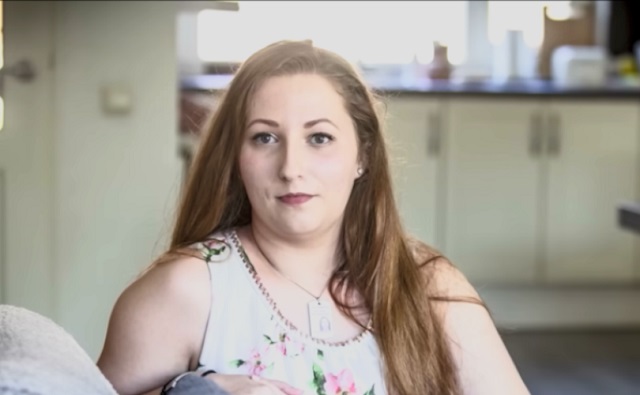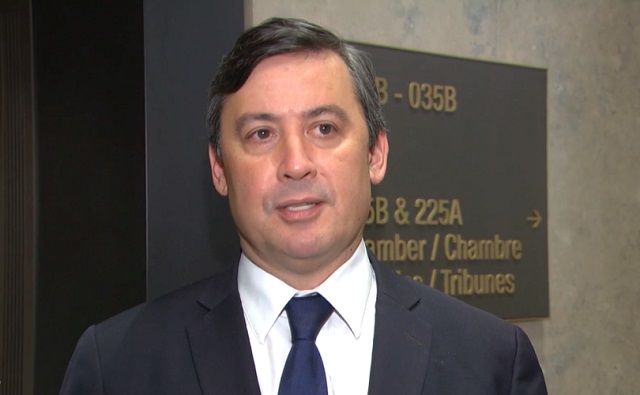Alberta
Aggressive measures in Alberta: Strict new rules for visiting seniors in care facilities

Province of Alberta COVID-19 Update for March 20
NOTE: Dr. Deena Hinshaw reports approximately 30 minutes into this video
Forty-nine additional cases of COVID-19 have been confirmed, bringing the total number of cases in the province to 195.
Aggressive public health measures continue to help limit the spread of COVID-19.
Latest updates
- Cases have been identified in all zones across the province:
- 126 cases in the Calgary zone
- 43 cases in the Edmonton zone
- 17 cases in the North zone
- Five cases in the South zone
- Four cases in the Central zone
- Of these cases, 10 are currently hospitalized, five have been admitted to intensive care units (ICU), and one patient has died.
- At this time, three have recovered.
- Aggregate data, showing cases by age range and zone, as well as by local geographical areas, is available online at alberta.ca/covid19statistics.
Stronger restrictions are being put in place for visitors to long-term and seniors care facilities. Essential visitors will be restricted to a single individual who can be family, a friend, or a paid companion who provides care and companionship necessary for the well-being of the resident (physical and mental health) and/or a single designated visitor for a person who is dying, as long as only one visitor enters the facility at a time. Every visitor will undergo a health screening.
- Albertans are reminded of the importance of social distancing as an important way to minimize the spread of COVID-19.
- Albertans are discouraged from attending large shopping malls and other large public spaces, unless necessary.
- A tip sheet is available to help Albertans understand ways to minimize close contact with others in community settings.
- Mass gathering limitations and restrictions around public recreation and private entertainment facilities remain in place across the province.
- If Albertans see facilities that are not following these limitations and restrictions, they are asked to notify public health inspectors at Alberta Health Services through the online complaint form.
- For concerns related to dental practices, contact the Alberta Dental Association and College.
- For concerns related to medical offices and other patient care facilities, contact the College of Physicians and Surgeons of Alberta.
- While there are no restrictions at this time regarding personal services like hair salons, Albertans are reminded to reduce the number of times they leave their house to perform errands, practise social distancing and limit the amount of time they spend in crowded spaces.
- All Albertans need to work together to overcome COVID-19. Albertans are asked to share acts of kindness they have experienced in their community during this difficult time by using the hashtag #AlbertaCares.
ATB Financial services
ATB Financial has temporarily closed selected branches and has reduced hours for all other branches in order to protect the health and safety of their team members, customers and the communities they serve. Details about ATB Financial’s customer relief programs, closures and reduced hours can be found at atb.com.
Driver road tests suspended
Effective immediately, driver road tests are suspended until April 20. Albertans who already have a road test booked will be able to rebook online using the same test permit at no additional charge. We are working with the commercial carrier industry to deliver emergency Class 1 road tests as necessary.
Alberta Corporate Registry annual returns suspended
In keeping with public gathering restrictions, deadlines are suspended for businesses, corporations and non-profits that require holding annual general meetings in order to file their annual returns with Alberta Corporate Registry.
Winter camping closing
Alberta Parks is closing winter camping effective immediately and not accepting new winter camping reservations to limit the spread of COVID-19. Bookings for winter camping sites will be cancelled and customers notified via the online reservation system or by phone. Refunds will also be issued.
Liquor and cannabis retailers remain open
Liquor and cannabis retail locations remain open in Alberta. AGLC is maintaining business as usual. There is no impact to supply. Contact aglc.ca for more information.
Some liquor manufacturers producing hand sanitizer
Some Alberta distillers have begun producing or indicating an interest to produce alcohol-based hand sanitizers in their facilities to help fill a gap in many markets due to COVID-19. AGLC is supporting the manufacturers’ efforts, and more information can be found at https://aglc.ca/bulletin/production-hand-sanitizer-class-e. Check with your local distiller regarding the availability of hand sanitizers.
Information for travellers
Travel outside the country is strongly discouraged. Given the rapid global spread of the virus, it is no longer possible to assess health risks for the duration of the trip.
Any traveller returning from outside of the country should self-isolate for 14 days, even if they are feeling well, and monitor for symptoms.
Any traveller who has returned before March 12 should closely monitor themselves for symptoms. If they experience symptoms, they should self-isolate immediately and call Health Link 811 for follow-up assessment and testing.
The Alberta government and Travel Alberta have launched a campaign to inform Canadians travelling in the United States and Mexico about the importance of returning home.
COVID-19 related information has been provided for departing and returning passengers at the international airports in both Edmonton and Calgary. This information has also been shared with all airports in Alberta and several airlines.
Quick facts
- The most important measures that Albertans can take to prevent respiratory illnesses, including COVID-19, is to practise good hygiene.
- This includes cleaning your hands regularly for at least 20 seconds, avoiding touching your face, coughing or sneezing into your elbow or sleeve, disposing of tissues appropriately, and staying home and away from others if you are sick.
- Anyone who has health concerns or is experiencing symptoms of COVID-19 should complete an online COVID-19 self-assessment.
For recommendations on protecting yourself and your community, visit alberta.ca/COVID19.
Alberta
Canada’s advantage as the world’s demand for plastic continues to grow
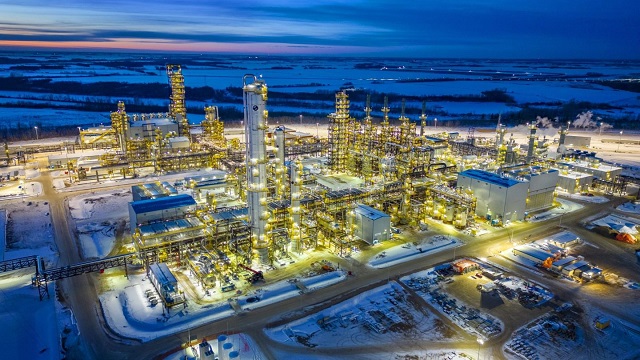
From the Canadian Energy Centre
By Will Gibson
‘The demand for plastics reflects how essential they are in our lives’
From the clothes on your back to the containers for household products to the pipes and insulation in your home, plastics are interwoven into the fabric of day-to-day life for most Canadians.
And that reliance is projected to grow both in Canada and around the world in the next three decades
The Global Plastics Outlook, published by the Paris-based Organization for Economic Co-operation and Development (OECD), forecasts the use of plastics globally will nearly triple by 2060, driven by economic and population growth.
The use of plastics is projected to double in OECD countries like Canada, the United States and European nations, but the largest increases will take place in Asia and Africa.
“The demand for plastics reflects how essential they are in our lives, whether it is packaging, textiles, building materials or medical equipment,” says Christa Seaman, vice-president, plastics with the Chemical Industry Association of Canada (CIAC), which represents Canada’s plastics producers.
She says as countries look to meet climate and sustainability goals, demand for plastic will grow.
“Plastics in the market today demonstrate their value to our society. Plastics are used to make critical components for solar panels and wind turbines. But they also can play a role in reducing weight in transportation or in ensuring goods that are transported have less weight in their packaging or in their products.”
Canada produces about $35 billion worth of plastic resin and plastic products per year, or over five per cent of Canadian manufacturing sales, according to a 2019 report published by the federal government.
Seaman says Canadian plastic producers have competitive advantages that position them to grow as demand rises at home and abroad. In Alberta, a key opportunity is the abundant supply of natural gas used to make plastic resin.
“As industry and consumer expectations shift for production to reduce emissions, Canada, and particularly Alberta, are extremely well placed to meet increased demand thanks to its supply of low-carbon feedstock. Going forward, production with less emissions is going to be important for companies,” Seaman says.
“You can see that with Dow Chemical’s decision to spend $8.8 billion on a net zero facility in Alberta.”
While modern life would not be possible without plastics, the CIAC says there needs to be better post-use management of plastic products including advanced recycling, or a so-called “circular economy” where plastics are seen as a resource or feedstock for new products, not a waste.
Some companies have already started making significant investments to generate recyclable plastics.
For example, Inter Pipeline Ltd.’s $4.3 billion Heartland Petrochemical Complex near Edmonton started operating in 2023. It produces a recyclable plastic called polypropylene from propane, with 65 per cent lower emissions than the global average thanks to the facility’s integrated design.
Achieving a circular economy – where 90 per cent of post-consumer plastic waste is diverted or recycled – would benefit Canada’s economy, according to the CIAC.
A Deloitte study, commissioned by Environment & Climate Change Canada, estimated diverting or reusing 90 per cent of post-consumer plastic waste by 2030 will save $500 million annually while creating 42,000 direct and indirect jobs. It would also cut Canada’s annual CO2 emissions by 1.8 megatonnes.
Right now, about 85 per cent of plastics end up in Canada’s landfills. To reach the 90 per cent diversion rate, Seaman says Canada must improve its infrastructure to collect and process the plastic waste currently being landfilled.
But she also says the industry rather than municipalities need to take responsibility for recycling plastic waste.
“This concept is referred to as extended producer responsibility. Municipalities have the responsibility for managing recycling within a waste management system. Given the competing costs and priorities, they don’t have the incentive to invest into recycling infrastructure when landfill space was the most cost-effective solution for them,” she says.
“Putting that responsibility on the producers who put the products on the market makes the most sense…The industry is adapting, and we hope government policy will recognize this opportunity for Canada to meet our climate goals while growing our economy.”
Alberta
Danielle Smith warns arsonists who start wildfires in Alberta that they will be held accountable

From LifeSiteNews
The Alberta government has created an ad campaign highlighting the fact that most fires are caused by humans and not ‘climate change,’ as many left-leaning politicians claim.
In preparation for the so-called wildfire “season,” Alberta Premier Danielle Smith sternly warned anyone caught starting blazes in her province, including arsonists, that they will face charges and be held fully “liable” for all costs associated with the fires.
“As we approach the wildfire season, it is important to understand that 67% of wildfires in Alberta are started by people,” Smith posted Monday on X.
“If you start a wildfire, you can be charged, fined, and held liable for all costs associated with fighting the wildfire.”
Smith made the comments after last year revealing that most of the wildfires in her province (500 of the 650) were caused by humans and not “climate change,” as has been pushed by the legacy media and opposition politicians.
“All I know is in my province we have 650 fires and 500 of them were human caused,” she said, “so we have to make sure that when people know that when it’s dry out there and we get into forest fire season that they’re being a lot more careful because anytime you end up with an ignition that happens it can have devastating consequences.”
To go along with Smith’s Monday message, the Alberta government has also created an ad campaign highlighting the fact that most fires are caused by humans and not “climate change,” as many left-leaning politicians claim.
As reported by LifeSiteNews last year, Smith ordered arson investigators to look into why some of the wildfires that raged across the vast expanse of the province had “no known cause” shortly after they spread.
During the campaign of Alberta’s 2023 election, Smith, whose United Conservative Party won a majority government, had to pause to deal with many wildfires that suddenly, out of nowhere, ravaged the province. The fires came on suddenly and uncharacteristically considering the heavy snowfall in the province in early March and rain in April.
LifeSiteNews reported that despite the arrest of multiple arsonists, Canada’s mainstream media and the federal government have been pushing a narrative attributing the recent wildfires to “climate change.”
Indeed, in January, LifeSiteNews reported that a man from Quebec admitted to starting 14 forest fires himself. This put a chill to the legacy media’s push that the fires in the province were caused by “climate change.”
However, statistics from Canada’s National Fire Database show that wildfires have gone down in recent years and peaked in 1989.
As for Canadian Prime Minister Justin Trudeau, he has repeatedly used “climate change” and forest fires as a catalyst for propping up his government’s much-maligned carbon tax, which Smith opposes. He has blamed the fires on “climate change.”
A June 2017 peer-reviewed study by two scientists and a veteran statistician confirmed that most of the recent global warming data have been “fabricated by climate scientists to make it look more frightening.”
Trudeau has been calling for increased bans on Canada’s natural resources, of which Alberta has in abundance.
Smith has vowed to fight Trudeau on his attacks against Alberta’s oil and gas industry.
The reduction and eventual elimination of so-called “fossil fuels” and a transition to unreliable “green” energy has also been pushed by the World Economic Forum (WEF), the globalist group behind the socialist “Great Reset” agenda in which Trudeau and some of his cabinet are involved.
-

 Jordan Peterson2 days ago
Jordan Peterson2 days agoJordan Peterson slams CBC for only interviewing pro-LGBT doctors about UK report on child ‘sex changes’
-
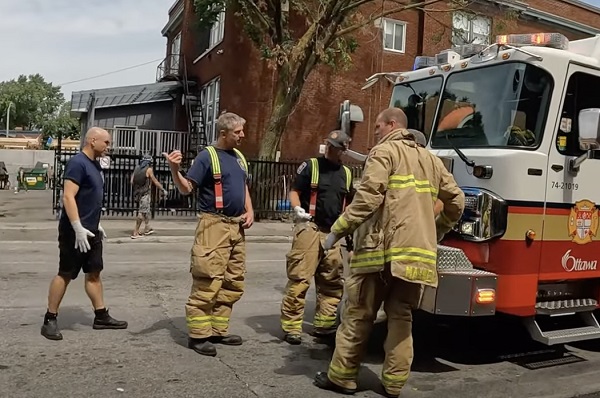
 Addictions2 days ago
Addictions2 days agoLiberal MP blasts Trudeau-backed ‘safe supply’ drug programs, linking them to ‘chaos’ in cities
-

 International2 days ago
International2 days agoBrussels NatCon conference will continue freely after court overturns police barricade
-

 International21 hours ago
International21 hours agoTelegram founder tells Tucker Carlson that US intel agents tried to spy on user messages
-

 Agriculture2 days ago
Agriculture2 days agoBill C-282, now in the Senate, risks holding back other economic sectors and further burdening consumers
-
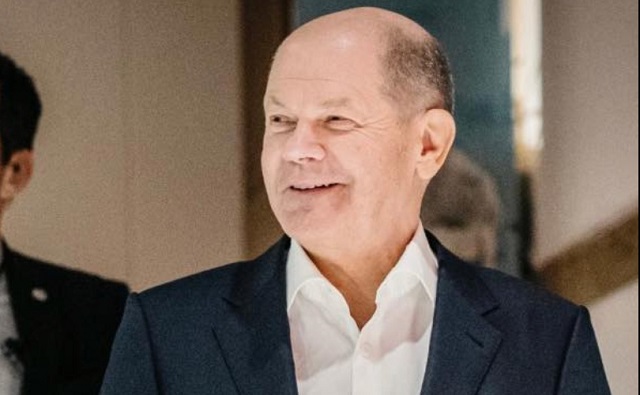
 International9 hours ago
International9 hours agoGerman parliament passes law allowing minors to change their legal gender once a year
-

 Economy2 days ago
Economy2 days agoFederal government remains intransigent on emissions cap despite dire warnings of harm
-

 Business21 hours ago
Business21 hours agoNew capital gains hike won’t work as claimed but will harm the economy





